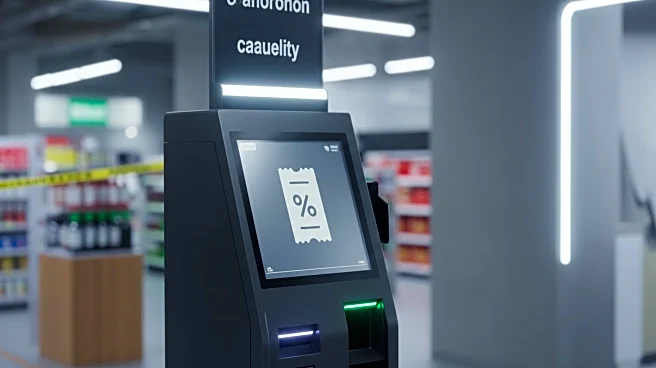What is the story about?
What's Happening?
Self-checkout lanes have revolutionized the shopping experience by offering speed and privacy, allowing customers to bypass long lines. However, these systems have also introduced vulnerabilities that some shoppers exploit through various coupon tricks. These tricks include scanning paper coupons multiple times, using expired coupons, and entering high-value coupon codes for cheaper items. Additionally, shoppers have been able to stack manufacturer and store coupons incorrectly, use coupons for incorrect product sizes, and double dip with digital and paper coupons. These actions, while saving money for the consumer, are not in line with store policies and can lead to audits or bans if detected.
Why It's Important?
The exploitation of self-checkout systems through coupon tricks has significant implications for retailers. Stores face financial losses due to these loopholes, which can result in increased prices for all consumers to offset the losses. This situation also creates frustration among honest shoppers who adhere to coupon policies. Furthermore, individuals caught exploiting these systems may face penalties, including fines or legal action. The integrity of retail operations is compromised, prompting stores to enhance security measures and update systems to prevent such abuses.
What's Next?
Retailers are likely to continue improving their self-checkout systems to close existing loopholes and prevent coupon abuse. This may involve updating software to better track coupon usage and expiration dates, as well as implementing stricter enforcement of coupon limits. As stores enhance their systems, consumers may experience changes in self-checkout procedures, potentially including more rigorous checks or limitations on coupon stacking. Retailers may also increase awareness campaigns to educate shoppers on proper coupon usage.
Beyond the Headlines
The ethical implications of exploiting self-checkout systems highlight broader issues of consumer behavior and retail ethics. While some may view these tricks as harmless, they reflect a willingness to circumvent established rules for personal gain. This behavior can erode trust between consumers and retailers, prompting discussions on the balance between convenience and ethical shopping practices. Long-term, this may influence how retailers design their systems and interact with customers.















